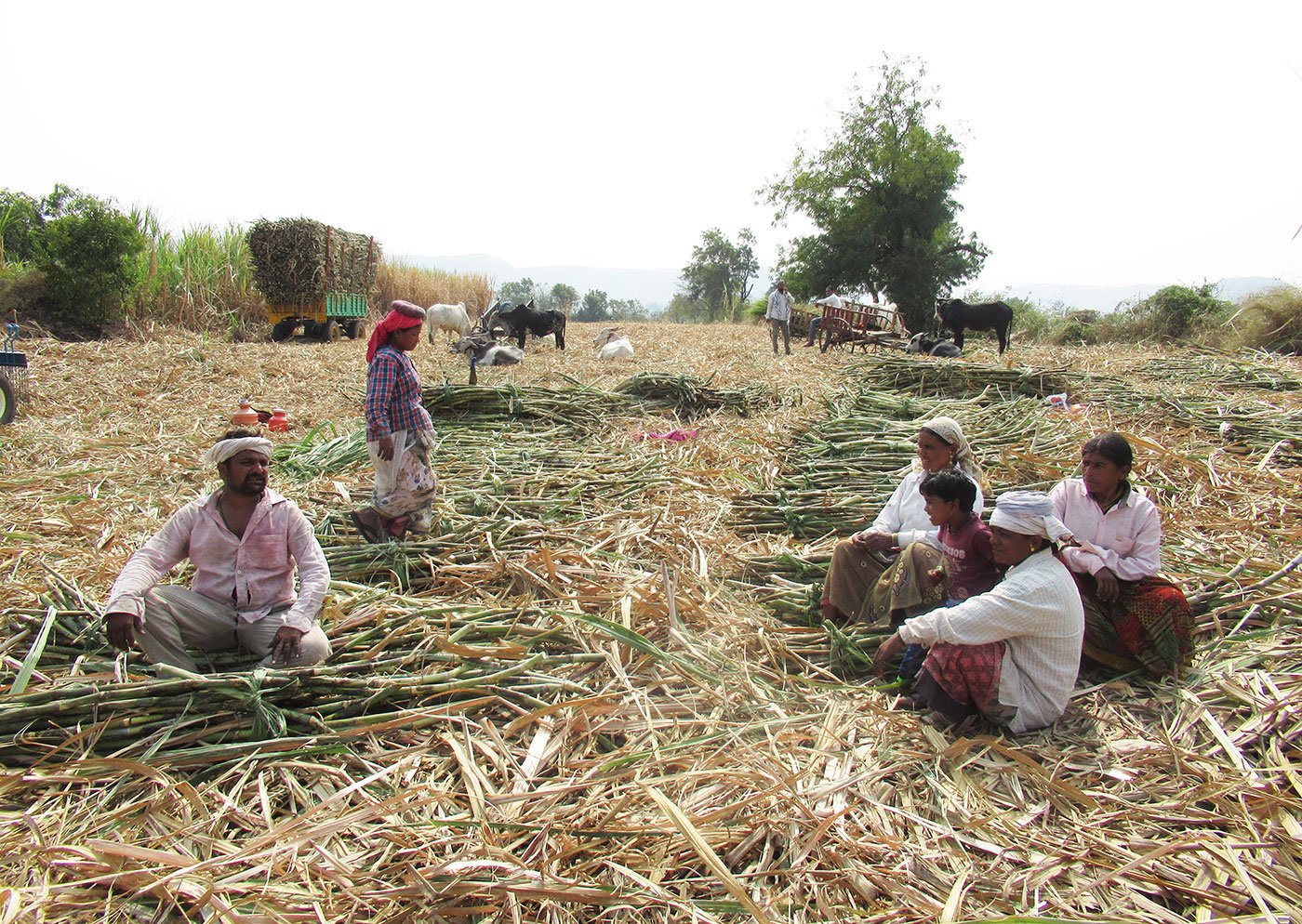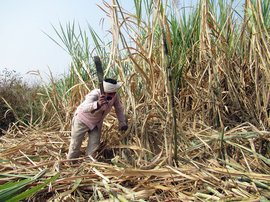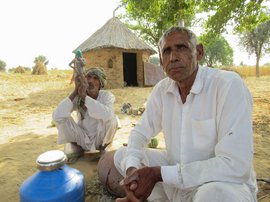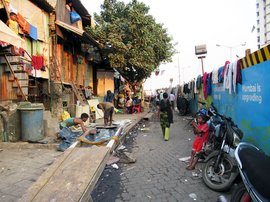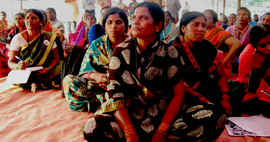The phone call went unanswered while the 30-second caller tune recording dutifully intoned: “It is possible to stop the spread of the virus… Regularly wash hands with soap, and maintain one metre distance from those who might be sick.”
When he picked up the phone the second time I called, Balasaheb Khedkar was doing exactly the opposite of what the caller tune had advised. He was chopping sugarcane in the fields of Sangli district in western Maharashtra. “Everybody here is terrified of coronavirus,” he said. “The other day, I saw a woman crying loudly because she was worried she would contract it and her child would also be infected.”
Khedkar, 39, has been assigned as a labourer at the G.D. Bapu Lad Cooperative Sugar Factory – one of many across Maharashtra that continue to function. Sugar is listed as an ‘essential commodity’ and therefore exempt from the nationwide lockdown announced on March 24 by Prime Minister Narendra Modi to contain the virus. A day before that, Maharashtra Chief Minister Uddhav Thackeray had closed the state borders and barred intra-state travel.
The state has a total of 135 sugar factories – 72 are cooperatives and 63 are privately-owned, says Balasaheb Patil, the state's Cooperative Minister. “Of these, 56 factories shut on March 23, and 79 remain operational,” he told me on the phone. “The sugarcane that comes to those factories is still being chopped in the fields. Some of them will stop crushing by the end of March, some will go on till the end of April.”
Every sugar factory has a certain acreage of sugarcane fields under its purview. The labourers hired by the factory are required to chop the cane in those fields and bring it to the factory for the crushing process. The factory hires the labourers through contractors.
Hanumant Mundhe, a contractor at the Chhatrapati Sugar Factory near Baramati, says they ‘book’ labourers by paying them a sum of money in advance. “We have to ensure they chop cane worth that advance at the end of the season,” he adds.
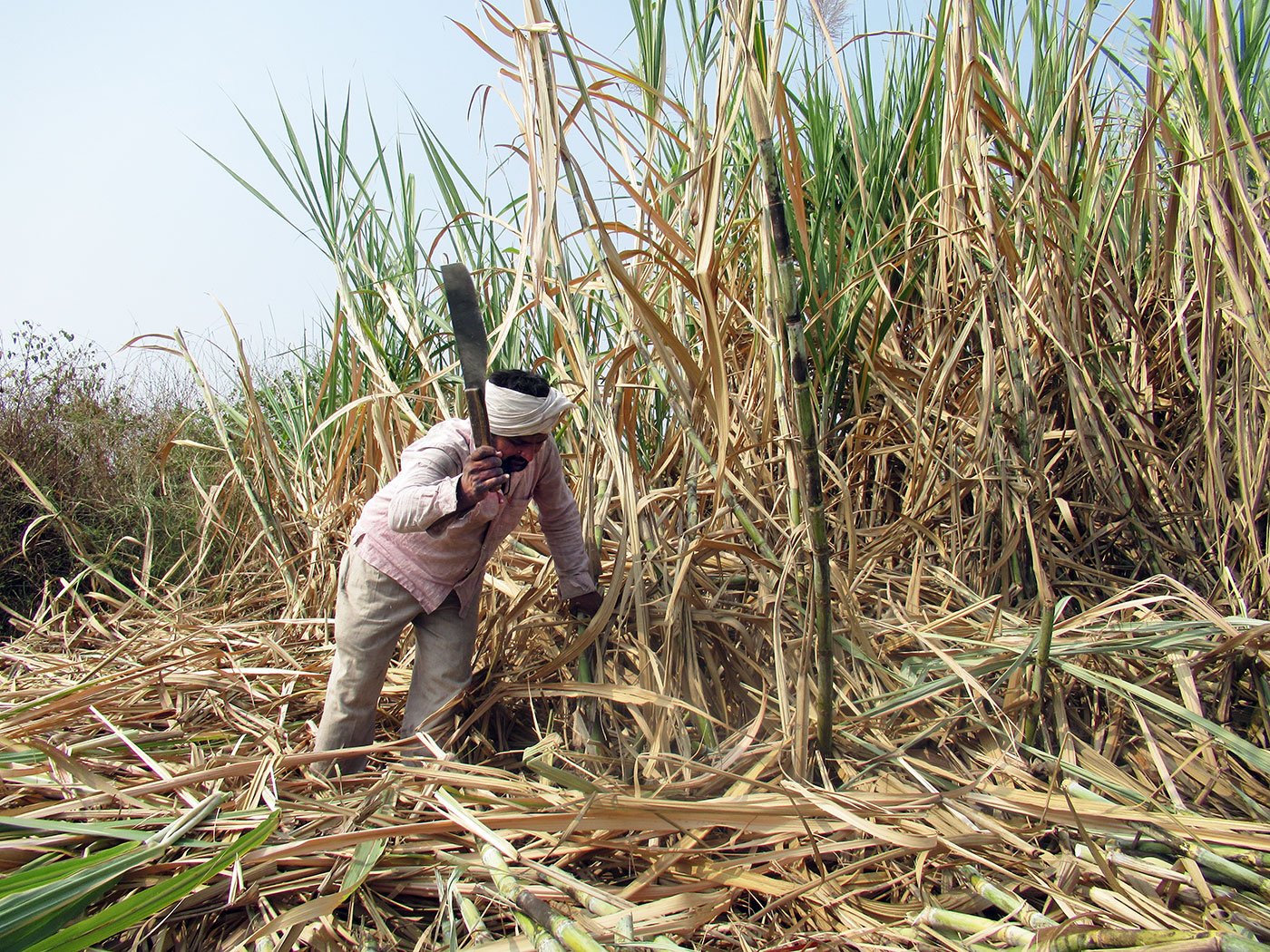
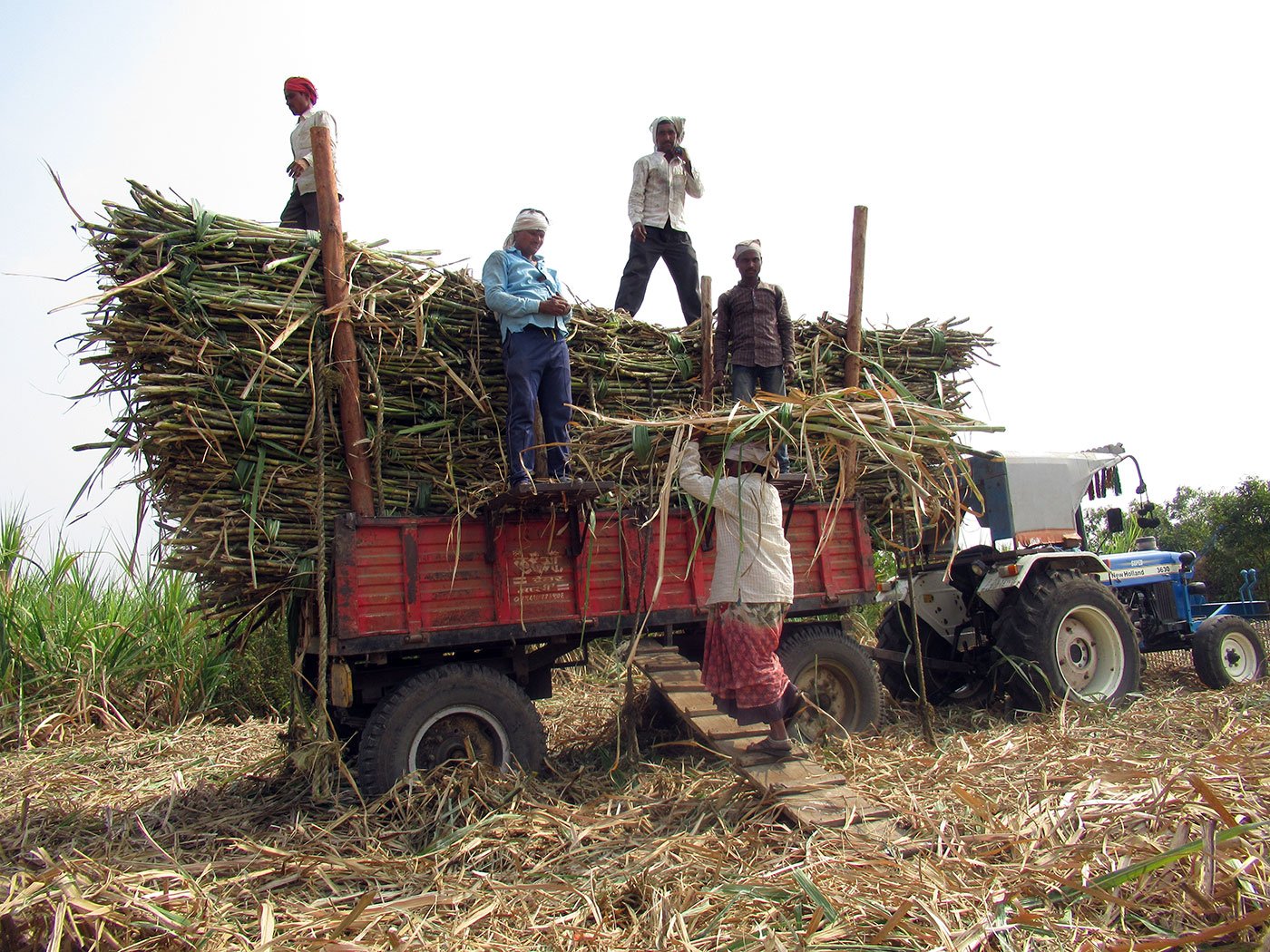
File photos of labourers from Maharashtra's Beed district chopping cane in the fields and loading trucks to transport it to factories for crushing. Cane is still being chopped across western Maharashtra because sugar is listed as an 'essential commodity'
In a notification disguised as a threat, the sugar factory in Sangli where Khedkar is working wrote to its contractor on March 18 that the sugarcane season is about to conclude and it is mandatory for the labourers to chop cane until the end of the season. “Or else, you will not get your commission and the travel allowance to get back home,” the letter concluded.
The contractors, therefore, have to compel labourers to carry on. Mundhe said he is also a farmer and cannot afford to lose his commission from the factory. “They all want to go back,” he said. “But unfortunately it is not in their hands.”
When we spoke on the phone on March 27, he was sitting among the labourers. I asked him if he could pass the phone to any of them. Maruti Maske, 35, from Pahadi Pargaon village in Beed, agreed to talk. “We are terrified of this virus mostly because nobody is telling us what it exactly means,” he said. “The messages on WhatsApp add to the panic. We just want to go back home.”
On March 26, the Maharashtra chief minister, in a public address, asked labourers to stay where they were because travel increases the risk of spreading the virus. “We will look after the workers,” he said. “It is our responsibility, it is our culture.”
If the sugarcane labourers stay where they are, the state will have to rollout huge measures to take care of them – the labourers live on the bare minimum and are in no position to wait it out.
Most of them are also farmers in their villages, with small landholdings, but the farmland is no longer enough to sustain their families. The weather is increasingly erratic, the cost of inputs like seeds and fertilisers is soaring, and the returns are diminishing. Khedkar has three acres back home in Munguswade village, on the border of Beed and Ahmadnagar, where he mainly cultivates bajra . “We do not sell it anymore,” he says. “The crop is just about enough for our family’s meals. Our income is completely dependent on this labour.”
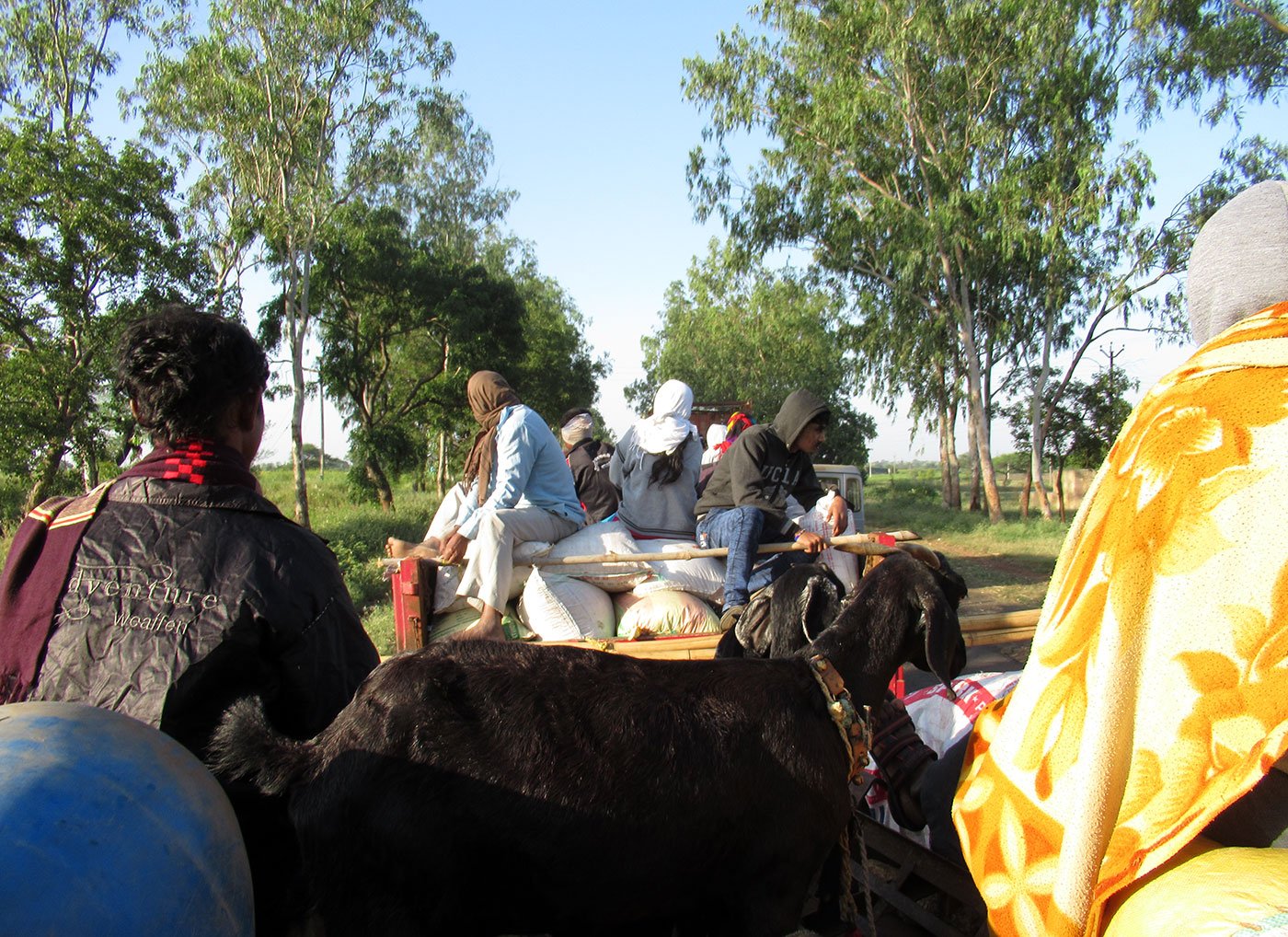
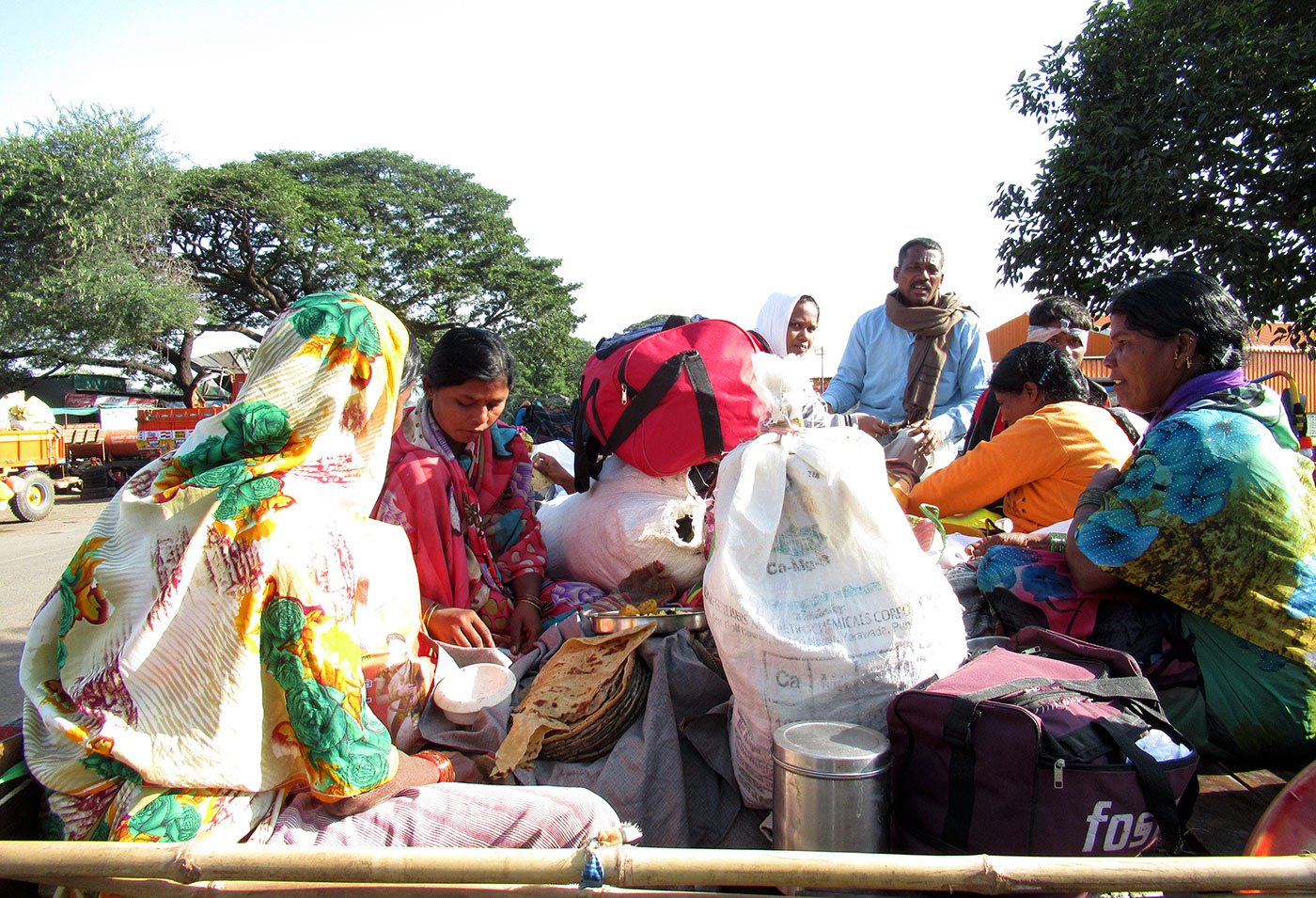
Lakhs of workers from the agrarian Marathwada region migrate to the sugar factories of western Maharashtra and Karnataka when the season begins in November every year. They cook and eat meals while on the road (file photos)
Like him, every year, lakhs of workers from the agrarian region of Marathwada migrate to the sugar factories of western Maharashtra and Karnataka when the season begins in November. They stay there and cut cane 14 hours a day over a six-month stretch.
Balasaheb and his wife Parvati, 36, have been migrating for 15 years. Both are ceaselessly cutting cane in the open fields along with hundreds of other labourers, even as many in the country are safely huddled up in their homes due to the lockdown. “We are desperate, so we have to do it,” says Balasaheb.
The sugar factories – most of them owned directly or indirectly by powerful politicians in the state – make massive profits, while the labourers get a mere Rs. 228 for every ton of cane they chop. Balasaheb and Parvati together chop not more than 2-3 tons a day after toiling in the fields for 14 hours a day. “At the end of six months, the two of us would have made around Rs. 1 lakh,” he says. “We do not complain normally, but this year, the risk seems too much.”
When the workers migrate, they install temporary shacks in the sugarcane fields. About five feet high, the shacks are made of hay, some covered with plastic, with just about enough room for two people to sleep. The labourers cook food in the open and have to use the fields as toilets.
“If I send you photos of the way we live, you will be shocked,” Balasaheb says. “Social distancing is a luxury we cannot afford.”
“The huts are located close to each other,” says Parvati. “Whether around our shacks, or in the fields, it is impossible to maintain one metre of distance from other workers. Plus, we have to fill water every evening, and 25 women fill water from the same tap. That limited water is to be used for cleaning, cooking and drinking.”
Despite the terrible conditions, Khedkar says there is little they can do about it. “The sugar factory owners enjoy a lot of clout,” he says. “None of us would dare to speak up against them or stand up for our rights.”
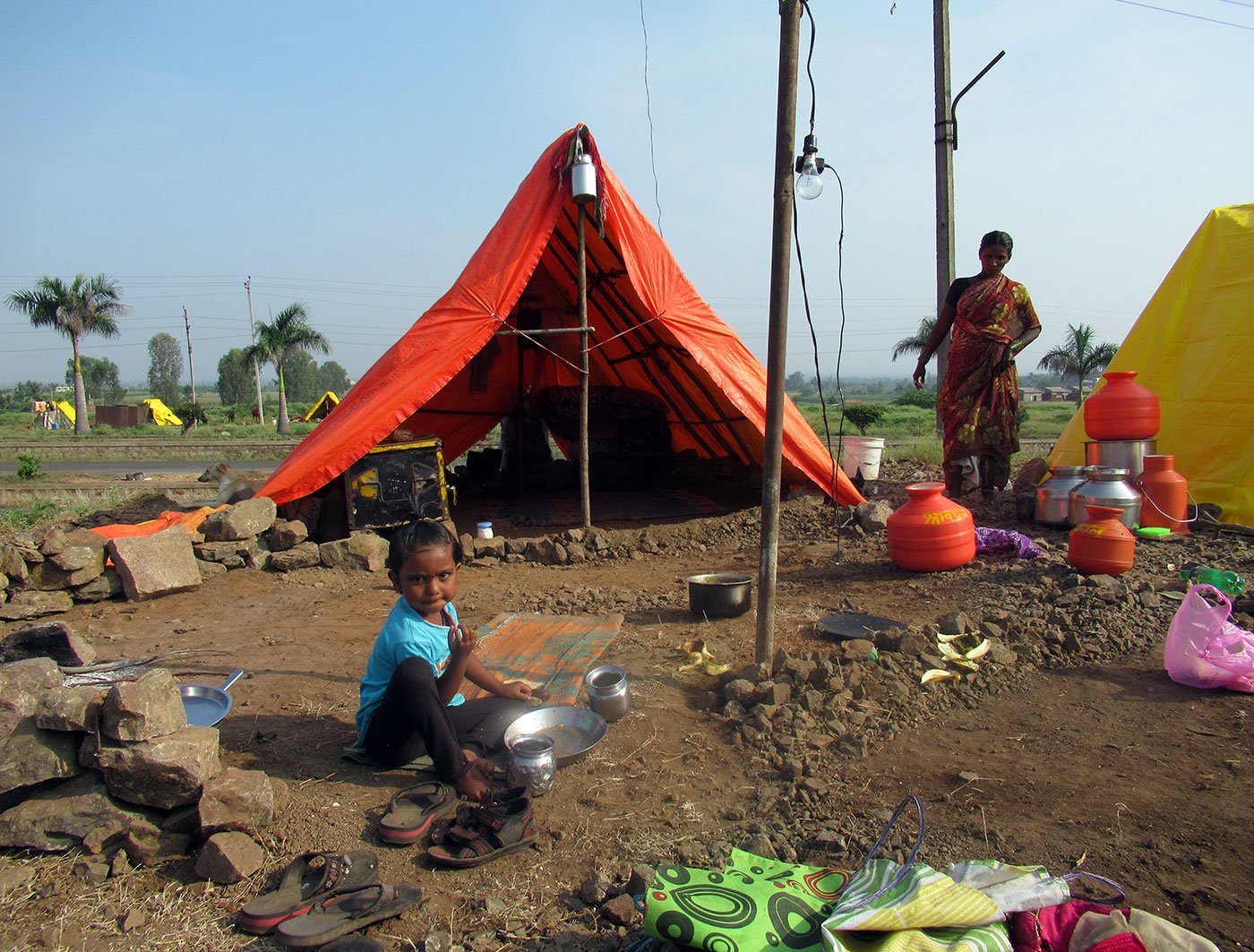
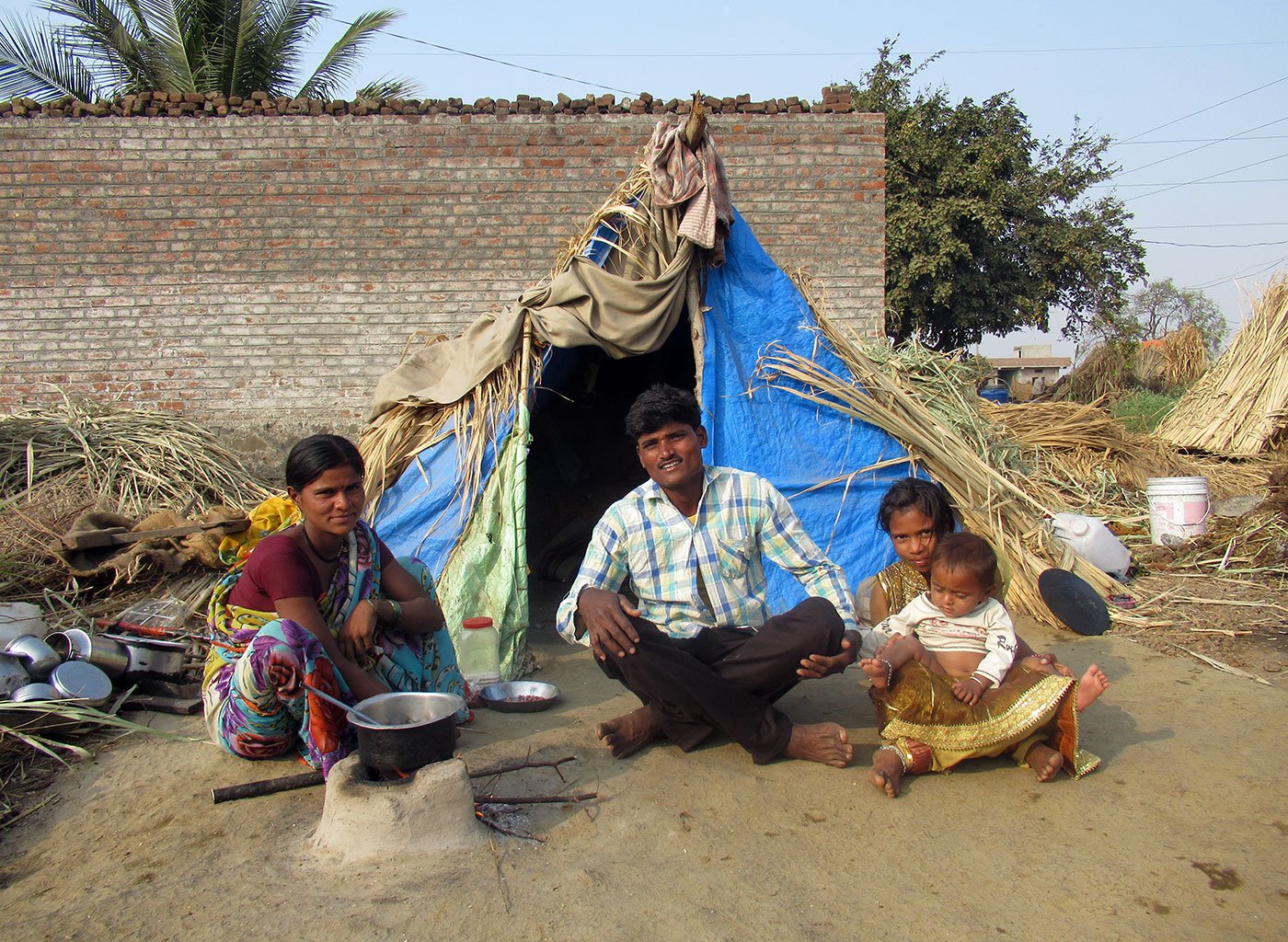
The migrant workers install temporary shacks on the fields, where they will spend six months at a stretch. They cook food in the open and use the fields as toilets. 'Social distancing is a luxury we cannot afford', says Balasaheb Khedkar (file photos)
Every sugar factory assigns at least 8,000 workers, says Deepak Nagargoje, an activist based in Beed, who works on the problems faced by the families of migrant sugarcane workers. If 79 factories are functioning today, it means more than 6 lakh workers are not able to practice social distancing or maintain adequate hygiene. “This is nothing but dehumanisation of the workers,” said Nagargoje. “The sugar factories should immediately release them, and not cut their wages.”
After Nagargoje raised the issue in the local media, on March 27, Saurabh Rao, Sugar Commissioner of Maharashtra, released a notice stating that sugar is an essential commodity and therefore exempted from the lockdown. “If the state is to have adequate supply of sugar, the factories will have to continue because that is where the raw material comes from. But the workers cutting cane at the factories ought to be looked after,” the notice said, and issued specific directives to the factories.
These included asking the factories to make arrangements for the workers’ stay and food, along with providing them hand sanitisers and enough water to maintain adequate hygiene. The directives also asked factories to ensure that the workers can maintain social distancing.
Postscript: By Sunday, March 29, labourers at 23 factories stopped working because the factories haven't provided any of these facilities.
Balasaheb Khedkar told me that the local sugarcane workers at his factory continue to work. But migrant labourers like him and Parvati have stopped two days ago. "It has become even more difficult because the local ration shops also want to stay away from us, fearing we have coronavirus," he said. “We cannot do this work on an empty stomach. The factory has not given us masks or sanitisers, but it should at least ensure our food."
